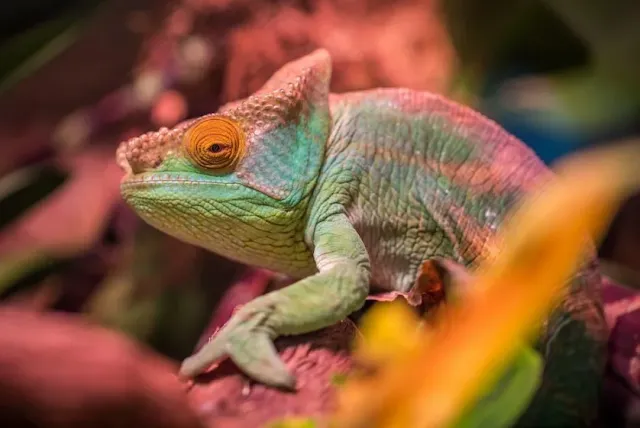Introduction
Owning and operating a petting zoo is a fulfilling experience, allowing you to share the joy of animal interactions with visitors of all ages. It creates lasting memories, fosters a love for nature, and brings people closer to animals in a fun and educational setting. However, running a petting zoo also comes with risks, including potential injuries, property damage, and legal liabilities.
That’s where petting zoo insurance comes in. This specialized insurance helps protect both your animals and your business from unexpected events. In this guide, we’ll explore the importance of having proper insurance coverage, the different types available, common risks petting zoos face, and how to choose the best policy for your needs.
The Importance of Petting Zoo Insurance
1. Protecting Your Animals
Your animals are the heart of your petting zoo, and their well-being is a top priority. Despite careful handling and safety measures, accidents or illnesses can still occur. A comprehensive insurance policy can cover veterinary expenses if an animal falls ill or gets injured, ensuring they receive the necessary medical care without placing a financial burden on you.
Additionally, some policies cover loss due to theft or natural disasters like fires or floods, giving you peace of mind knowing that your animals are protected in any situation.
2. Safeguarding Against Liability Claims
Since petting zoos involve close interactions between animals and visitors, there is always a risk of injuries. A child may be bitten, scratched, or knocked over by an animal, leading to potential legal claims. Parents may seek compensation for medical bills, emotional distress, or other damages, leaving you with significant financial liabilities.
With liability insurance, you’re protected against such claims. This coverage typically includes:
-
Legal defense costs if someone sues your petting zoo.
-
Medical expense coverage for injuries sustained by visitors.
-
Settlements or court-ordered payouts in case of a lawsuit.
Without insurance, a single lawsuit could jeopardize your business.
3. Meeting Legal and Regulatory Requirements
Many states and local governments require petting zoo operators to have insurance as part of their licensing and regulatory requirements. Even if it’s not legally required in your area, having proper coverage demonstrates responsibility and commitment to safety, helping build trust with your customers and community.
Types of Petting Zoo Insurance Coverage
To fully protect your petting zoo, consider the following essential insurance policies:
1. General Liability Insurance
This is one of the most crucial types of coverage for petting zoo owners. It protects against:
-
Injuries to visitors (e.g., bites, scratches, slips, or falls).
-
Property damage caused by animals or staff.
-
Legal fees and settlements if someone sues for negligence.
2. Animal Mortality Insurance
If your petting zoo includes rare or high-value animals, animal mortality insurance can provide reimbursement for losses due to illness, accidents, or natural disasters. Some policies may also cover medical expenses for lifesaving treatments.
3. Property Insurance
This coverage protects your physical assets, including:
-
Animal enclosures, barns, and pens.
-
Feeding equipment, tools, and supplies.
-
Damage caused by fire, theft, vandalism, or natural disasters.
4. Commercial Auto Insurance
If your petting zoo involves transporting animals to events, schools, or fairs, commercial auto insurance is essential. It covers:
-
Accidents involving your business vehicles.
-
Liability claims for property damage or injuries caused by your vehicles.
-
Non-collision incidents such as theft or vandalism.
Common Risks Faced by Petting Zoos
Running a petting zoo involves unique challenges. Here are some common risks and how insurance helps mitigate them:
-
Animal Bites or Scratches – Even well-trained animals can react unpredictably, leading to visitor injuries. Liability insurance covers medical costs and legal fees in such cases.
-
Slip and Fall Accidents – Uneven terrain, hay, or mud can cause visitors to slip and get injured. General liability insurance covers claims related to falls on your premises.
-
Allergic Reactions – Some visitors may experience allergic reactions to animal fur, dander, or hay. Insurance helps cover medical emergencies arising from such incidents.
-
Property Damage – Animals may accidentally damage visitors' belongings, such as clothes, phones, or cars. Having the right coverage ensures you’re protected.
Frequently Asked Questions (FAQs)
Q: Are certain animals excluded from petting zoo insurance coverage?
A: Some insurance providers exclude high-risk animals, such as large carnivores (e.g., lions, tigers) or venomous species. Always check your policy’s specific terms.
Q: Can I get insurance for a mobile petting zoo?
A: Yes! Many providers offer coverage specifically for mobile petting zoos, ensuring you’re protected when bringing animals to schools, birthday parties, and events.
Q: How much does petting zoo insurance cost?
A: Costs vary depending on factors such as:
-
The size of your operation.
-
Number and types of animals.
-
Coverage limits and policy options.
-
Location and risk factors.
On average, basic liability insurance may cost $500–$2,000 annually, while comprehensive plans could be higher.
Q: Do I still need permits and licenses if I have insurance?
A: Yes. Insurance does not replace legal permits and licenses required to operate a petting zoo. Always check with local authorities to ensure compliance.
Q: How do I choose the right petting zoo insurance policy?
A: Consider these factors:
-
Coverage Limits – Ensure your policy covers both minor incidents and major liabilities.
-
Exclusions – Be aware of any animal breeds or situations not covered.
-
Premium Costs – Balance affordability with adequate protection.
-
Reputation of the Insurance Provider – Choose a reliable company with experience in animal-related businesses.
Conclusion
Owning a petting zoo is a rewarding but high-risk business. Without proper insurance, a single accident or lawsuit could jeopardize your livelihood. Investing in petting zoo insurance ensures your animals, visitors, and business are protected from unforeseen incidents.
By securing comprehensive coverage tailored to your needs, you can focus on creating joyful experiences for your guests while maintaining peace of mind. Whether you operate a fixed-location petting zoo or a mobile setup, having the right insurance is essential for long-term success.




0 Comments